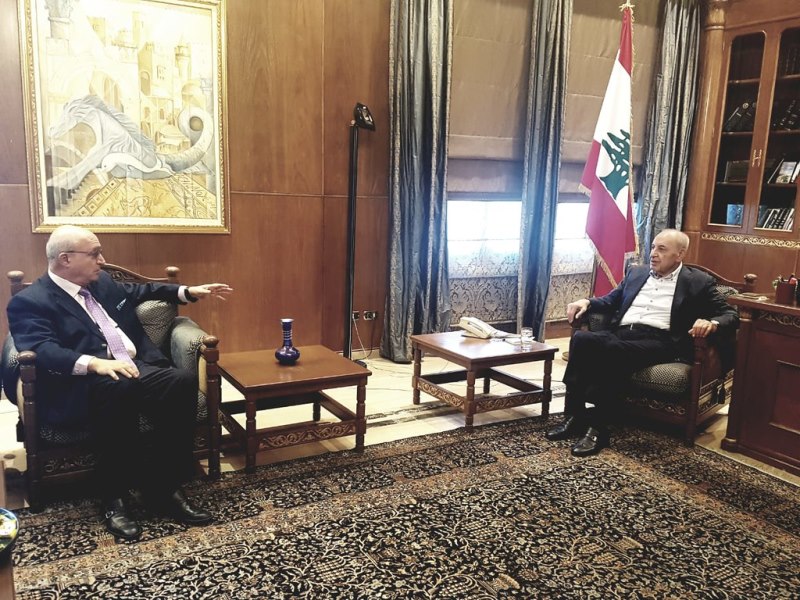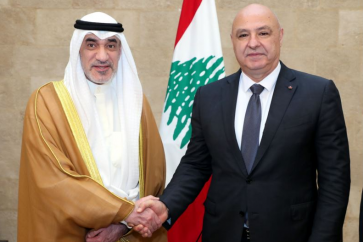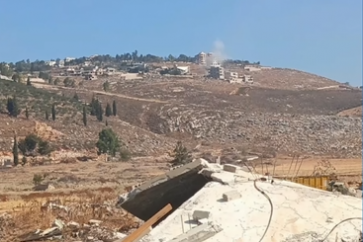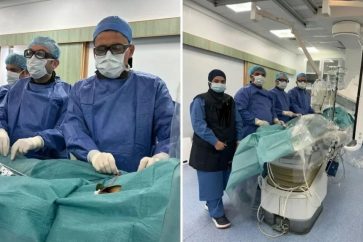House Speaker Nabih Berri confirmed, during his meeting today with a delegation from “Al-Mayadeen” media network headed by its board chairman, Ghassan Bin Jeddo, that “the utmost betrayal of the principle is what happened with the issue of Palestine and Jerusalem, as it is the criterion for measuring belonging in the right position, for Palestine and Jerusalem are not a piece of land, but rather two pieces of heaven.”
He emphasized that “Lebanon is the most country in the Arab world that is affected by reconciling with the Israeli enemy.”
“Lebanon is located within a shifting environment of dangerous repercussions across the region, from Iraq, Syria and Yemen, which are sister countries that are still within the risk of division, so what is required is patience and not surrender, for such a danger is not the destiny of this nation,” Berri asserted.
On the framework agreement regarding the demarcation of land and sea borders between Lebanon and occupied Palestine, Berri said: “It is a necessary step, but it is not sufficient. It must be accompanied with the formation of a government as soon as possible, one that is capable of saving the country from its floundering crises, and implementing the detailed contents of the framework agreement declaration.”
He added: “The framework agreement is an agreement to demarcate borders, nothing more, nothing less.”
Berri reiterated “adherence to all components of the French initiative,” pointing out that “the main challenge now is to reach an agreement on naming the prime minister, and the rest of the matters and steps are easy to agree upon under the rooftop of this initiative.”
Concerning fears of the awakening threat of terrorism, he said: “Yes, ISIS is a project that has not ended, neither in Syria, nor in Iraq, or even in Lebanon.”
Earlier today, the House Speaker also met with former MP Nasser Qandil, who said after the meeting that the visit was to commend “this great national achievement by Speaker Berri, after long patience, suffering and steadfastness in terms of national constants and rights…The framework for demarcating the borders is much more significant than what many can think, and it is undoubtedly, as the days will reveal, a turning point in the lives of the Lebanese and in the renaissance of their economy and society, and an opportunity for them to show more cohesion and adherence to their national unity in this Arab era of heading towards normalization.”
Qandil lauded the House Speaker’s efforts and keenness on the Lebanese state, relaying his confidence in the country’s ability to overcome its ordeals, and hope that “in a reasonable period, there would a national government that can assume responsibilities, since the framework agreement requires a cabinet that can deal with a fateful issue, with sovereign wealth, with a responsibility that is feared to be lost amidst the chaos if the country remains without a government.”
Source: NNA




